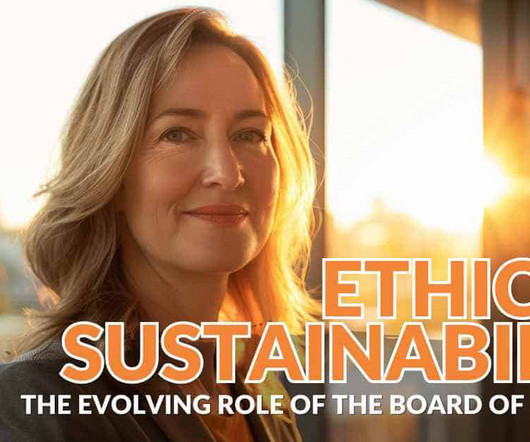The Evolving Role of the Board of Directors in Sustainability and Ethics
N2Growth Blog
APRIL 30, 2024
Hence, responsible business practices improve reputation and efficiency, ensuring long-term viability. It calls for courageous leadership from a board willing to innovate, collaborate, and inspire others to follow. It calls for courageous leadership from a board willing to innovate, collaborate, and inspire others to follow.

















Let's personalize your content